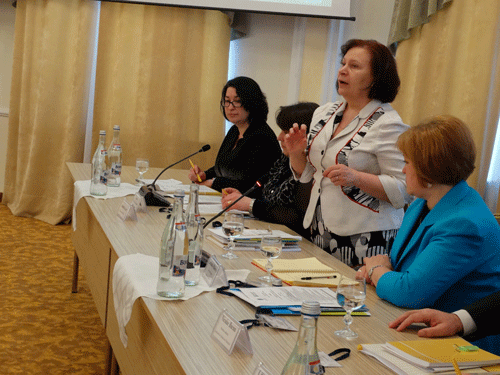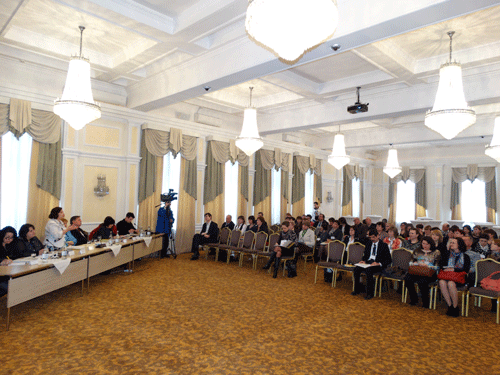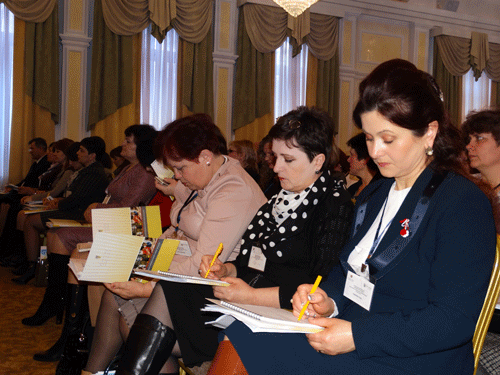“Positive discrimination is still a transitional period we are going through. Truly inclusive education is when the social spotlight is not just the child with SEN, but every child”, stated Valentina Chicu, chief of Pre-University Education Directorate within the Ministry of Education of the Republic of Moldova.
The project Equal Access to Education was implemented in the period October 2010 – March 2014 and aimed to implement a pilot program related to increasing equal access to education for children with special educational needs (SEN). The pilot program was implemented on the basis of the Methodology of Implementation of Inclusive Education, developed by Keystone Moldova and approved by the Ministry of Education. This Methodology implies a comprehensive approach to the process of school inclusion of children with SEN, which includes both actions to create the necessary conditions at school level (individual approach, according to the needs, training of teachers, adaptation of course materials etc.) and actions meant to change the community attitude towards these children.
As a result of the implementation of this project, the Intraschool Multidisciplinary Team was established in every pilot school, which assessed the educational needs of children with SEN and ensured the educational inclusion of every child. As a result, 225 children with SEN have been included in the community schools with Individual Education Plans. Concomitantly, Keystone Moldova has provided support to Rayonal Directorates of Education in the training of 404 teachers involved in the process of inclusive education and in the selection and capacity building of 30 support teachers, who provided individual support to children with special educational needs.
Resource Centers for Inclusive Education were created in 15 schools and 445 children with SEN and their colleagues benefit from their services. In order to prevent and reduce discrimination towards children with disabilities, optional courses were introduced for elementary school pupils on education, tolerance and acceptance. 70 forum theatre performances were organized for pupils, teachers and parents.
Tamara Bejan, secondary school teacher in Neculaieuca village, Orhei rayon stated at the conference: “The entire school, all the pupils and teachers benefited from the project Equal Access to Education. We have got a Resource Center for Inclusive Education, a support teacher in the school and a lot of training. Sergiu, who came to us from the Orhei institution, turned from a child, who needed help to dress, move and eat into a respectful VI-grade pupil with responsibilities, learning achievements and great love of life. Despite his disability, he works a lot, he walks supported by two canes, because he is eager to go to school, shopping, going out with friends…”
Rodica Mocanu, mother of a child with disability, also came with a motivation: “I want our children not to be discriminated, but to be included in the society. Every child can be useful to the society, if he is accepted and supported. Today is Happiness Day, tomorrow is the Day of People with Down syndrome. I appeal to you – if you have a child or an adult with Down syndrome nearby, offer him/her several minutes of your time.”
The project Equal Access to Education was implemented by Keystone Moldova, in partnership with the Ministry of Education, Educational Program Step by Step, local public authorities and pilot schools administrations, with the financial support provided by Open Society Foundations – Early Childhood Program and Mental Health Initiatives.




